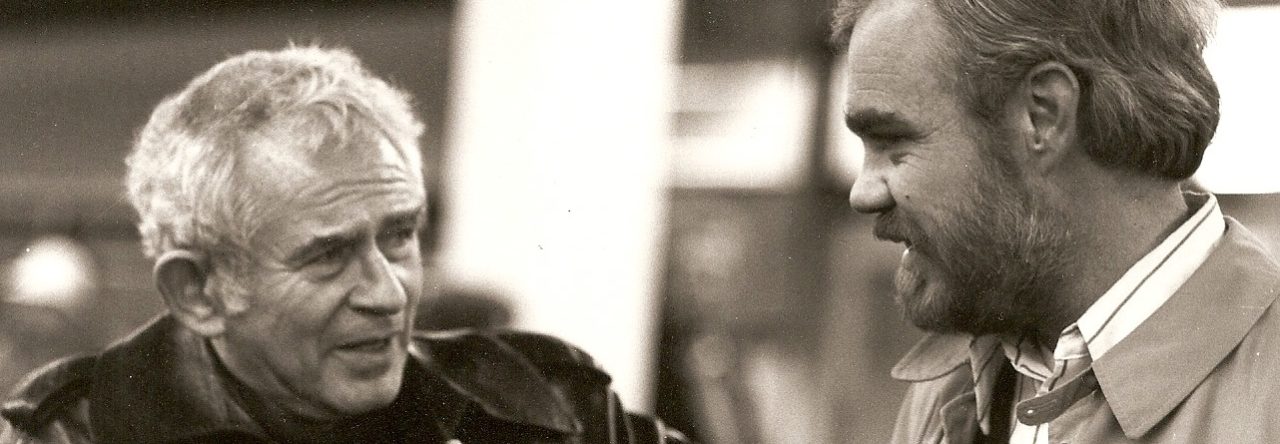“I knew Mailer’s books the way Southern Baptists preachers know the Bible.”
Category: Mention
When Norman Mailer spoke, you paid attention. Whether he was standing on a stage and speaking for an hour — without notes — on writing, or art, or politics, or in a manic monologue around a dinner table, or in a chance encounter on the sidewalks of New York or in an airport, you listened. Especially if you grew up idolizing him, as many of us did.
Kirkus Reviews names Norman Mailer: A Double Life one of this fall’s hottest biographies.
Norman Mailer: A Double Life named in The Atlantic Wire as an essential fall book.
In this meticulous authorized biography, Lennon offers a comprehensive and unflinching look at the life of the controversial American novelist, journalist, and filmmaker who dissected the zeitgeist from the 1950s until his death in 2007. Lennon, a personal friend and the literary executor of Mailer’s estate, had access to a trove of unpublished letters and interviews. The result, written in a measured and sometimes dry style, stresses the extremes of ugliness and compassion that defined the author’s life and work. Made famous by the publication of The Naked and the Dead, Mailer had a manic energy for writing and a roving intellect, thrusting himself into the center of current events and exploring topics such as Vietnam War protests and the history of the C.I.A. The prolific Mailer was also a public celebrity who made frequent television appearances and even ran an unsuccessful campaign for mayor of New York City. Though Lennon doesn’t hide Mailer’s dark side—his belligerent narcissism, infidelities, public drunkenness, and violence—he tries to balance these flaws by emphasizing Mailer’s passion for challenging received ideas, his sense of humor, and his moral seriousness as an opponent of power. While it’s difficult not to find Mailer the man repugnant, Lennon’s almost clinical perspective shows the author’s restless innovation, which was indispensable for understanding the U.S. in the second half of the 20th century.
. . . But the rest of the session raised some serious issues about keeping the proper distance with a subject who was a part of your life, as J. Michael Lennon dealt with before starting a biography of Norman Mailer. Lennon knew the writer for decades and became friendly with his children. He was even included in some of the letters Mailer wrote, and which Lennon edited and used as sources for his book. In his case, Lennon became a character in the story at times, and he wrestled with how much of himself to include, finally coming to the conclusion, “You can’t leave yourself out of certain junctures” when the biographer’s life overlaps with the subjects.
Barbara’s Picks, Oct. 2013, Pt. 4: Helen Fielding Returns, Franklin and Fennelly Team Up, and Lennon Offers a Norman Mailer Biography.
Emeritus Vice President for Academic Affairs and Emeritus Professor of English at Wilkes University in Pennsylvania, Lennon knew Norman Mailer and chairs the editorial board of the Mailer Review. So he is nicely primed to write this authorized biography, which draws on numerous interviews and unpublished letters. Given the richness of Mailer’s life as author and activist, public intellectual and philanderer, who consciously worked to shape his own identity, it’s hardly surprising that this work is nearly 1,000 pages long.
Thanks to James Wolcott for the favorable look at The Mailer Review and mentioning Mike:
The most affecting “lion in winter” portion of The Mailer Review concerns two literary lions, actually, Mailer and his longtime nemesis Gore Vidal. They had been bitterly feuding for decades–the famous contretemps on The Dick Cavett Show entering round two years later at a cocktail party hosted by Lally Weymouth at which Mailer banged a glass off of Vidal’s head to the horror delight of the glitterati in attendance, including Jacqueline Onassis–but had forged a wary truce when–I quote from J. Michael Lennon, the author of the piece and Mailer’s archivist and official biographer–“Mailer needed Vidal’s help raising money to underwrite a meeting in New York of P.E.N., the international writers’ organization.” [Mailer was then the president of P.E.N.] “Vidal graciously accepted, and shared the stage with Mailer.”
